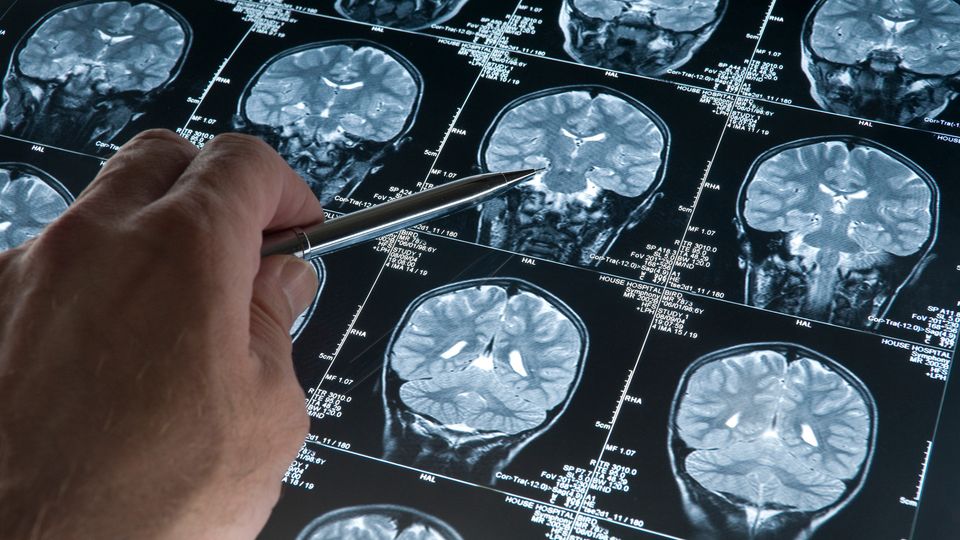How a Healthy Glymphatic System Could Reduce Alzheimer’s Disease Risk
Discover how the brain’s glymphatic system impacts Alzheimer’s risk and how lifestyle choices can help protect cognitive health.

Complete the form below to unlock access to ALL audio articles.
The following article is an opinion piece written by Anoutia Allymohamed. The views and opinions expressed in this article are those of the author and do not necessarily reflect the official position of Technology Networks.
Alzheimer’s disease (AD) is the most common cause of dementia, estimated to contribute to 60–70% of all dementia cases.1
AD is a progressive condition characterized by the gradual loss of memory and other cognitive abilities. During the early stages of AD, individuals may begin to experience symptoms of forgetfulness, such as missing appointments and having trouble recalling names. As the symptoms progress, individuals show increased signs of confusion and forgetfulness, which affect their ability to function and complete everyday tasks. At this stage, the symptoms of dementia affect the lives of these individuals as well as their caregivers.2
The main hallmarks of AD are amyloid plaques and intracellular neurofibrillary tangles (NFTs), which are formed from an abnormal accumulation of amyloid beta (Aβ) and tau proteins, respectively. The abnormal accumulation of these proteins takes place around synapses and within neurons, disrupting normal function and contributing to neurodegeneration.3
Mechanisms by which Aβ and tau are cleared from the brain are not completely understood, but there is increasing evidence that the glymphatic system, which clears waste compounds from the brain, plays an important role in Aβ and tau clearance.4
What is the glymphatic system?
The glymphatic system is a glial-dependent lymphatic transport system.5 The system was so named due to the functional similarity shared with the lymphatic system and due to the systems’ dependence on glial cells.6
Much like the lymphatic system, which filters and purifies waste from the blood, the glymphatic system has been found to provide a similar “cleaning” action in the brain.4,7 Through the circulation and interchanging of cerebrospinal fluid (CSF) and interstitial fluid (ISF) via a series of interconnected fluid-filled channels and vasculature structures, the glymphatic system is able to collect waste products such as metabolites and proteins and flush them towards drainage sites. From there, the CSF will exit the central nervous system via the lymphatic system.7,8
The role of the glymphatic system in Alzheimer’s disease
Neurons generate waste products such as carbon dioxide, potassium ions, hydrogen ions, other metabolites and potentially harmful substances daily. The glymphatic system plays a key role in the removal of these waste products, helping to maintain a healthy brain environment. Recently, it has been shown by experts such as Iliff et al.9, Patel et al.10 and Harrison et al.11 that the glymphatic system also plays a key role in Aβ and tau protein clearance, which, as discussed previously, have been heavily implicated in the AD pathology process.
In their landmark research paper, Iliff et al.9 demonstrated, through in vivo two-photon imaging of small fluorescent tracers in mice, that CSF flows through the perivascular spaces that surround arteries located in the parenchyma and that ISF, which is the fluid that contains waste, was cleared along drainage pathways. The authors also demonstrated that Aβ protein was also transported along this pathway by using fluorescent tracers, which specifically bind to Aβ, revealing that the identified pathway (which Iliff et al.9 later coined the “glymphatic system”) plays an important role in the clearance of Aβ.
Recent in vivo CSF studies by Ringstad et al.12 and Li et al.13, used MRI and PET imaging to measure the flow and efflux of CSF in dementia patients and healthy controls. The authors found that clearance of the CSF tracer was delayed or obstructed in the dementia cohort vs healthy controls, suggesting a link between failed CSF clearance and dementia. Ringstad et al.12 and Li et al.13 noted that CSF clearance is a major feature of brain glymphatic clearance, concluding that failed CSF clearance and, consequently, failed glymphatic clearance were likely features of AD pathology.
Primary factors that impair the glymphatic system
As sleep is the primary driver of glymphatic clearance, sleep disturbances can impede glymphatic activity and clearance, increasing the presence of Aβ and tau, and thus increasing AD risk.9 Studies such as those conducted by Shokri-Kojori et al.14, have shown that increased levels of Aβ are present in the brain after sleep deprivation. In their 2018 study, the authors showed that one night of sleep deprivation, relative to baseline, resulted in an increase in Aβ burden in brain regions that have been implicated in AD, notably the right hippocampus and thalamus. In addition, the authors also showed that a history of poor sleep was associated with higher Aβ burden. Thus, providing preliminary evidence for the negative effect of chronic sleep deprivation on Aβ in the human brain.
It is also important to note that Achariyar et al.15 also saw that the inflow and clearance of CSF were severely suppressed by sleep deprivation, providing further support to the impact of sleep on glymphatic transport. Furthermore, sleep disturbances such as insomnia, circadian rhythm disruption and sleep apnea can greatly impede glymphatic activity and clearance, increasing the presence of Aβ and tau protein.16
Crucially, the glymphatic system has been shown to be particularly vulnerable to vascular disruptions. This is due to a number of physiological structures which drive glymphatic flow including pulsatility, the muscular force driving CSF flow through perivascular spaces within the cerebral arteries.7 Flexibility of the arteries is also an important factor, as stiffening of the arteries caused by poor vascular health can reduce the amount of fluid that is transported at a given time due to narrowing of the arterial walls.7 Healthy arteries widen and relax during deep sleep which allows for an increase in CSF flow, highlighting an important relationship between vascular health and glymphatic health.4,7
Currently, diabetes, hypertension, stroke and obesity are significant conditions attributed to the disruption of vascular health and, consequently, glymphatic health.17-29 It has also been proposed that chronic stress and anxiety may impair glymphatic activity, not only through sleep disturbances, but by directly impacting cerebrovasculature.30,31
What can we do to keep our glymphatic system healthy?
The most effective and well-documented interventions and management options to maintain glymphatic system health are rooted in lifestyle choices.
Caffeine intake and stress are factors that should not be overlooked. In a review of epidemiological studies and randomized controlled trials, Clark and Landolt32 found that caffeine prolonged sleep latency, reduced total sleep time and worsened perceived sleep quality. Stress-related worry and rumination were also found to increase the risk of developing insomnia in those with sensitive sleep systems.30 Therefore, it has been recommended to limit caffeine intake to the morning and to take active steps to reduce stress as much as is possible.32
Sleep hygiene and implementing a sleep routine is also an important step. Keeping a regular sleep schedule by waking up at the same time every day and going to sleep at the same time every night can reset disordered circadian rhythms.33 Light has the strongest impact on circadian rhythms and therefore timed light exposure is important. It is recommended to limit exposure to artificial lights such as blue lights and screens at night, and to get as much exposure to natural light as possible after waking.34
It is important to note that chronic alcohol consumption also greatly increases the risk of vascular conditions such as stroke and heart disease.35 Lundgaard et al. saw that, while high doses of alcohol inhibited glymphatic activity, glymphatic function increased in mice following acute and chronic exposure of low levels of alcohol.36 Therefore, it may not be necessary to abstain entirely from alcohol to positively impact brain health and glymphatic activity.
Notably, adopting a diet reduced in saturated fat, salt and sugar, and high in fiber can help to prevent stroke and reduce hypertension, obesity and obesity-related complications such as diabetes and heart disease in the majority of cases.37-40 Some individuals may still need extra support in the form of blood pressure or weight loss medicines in conjunction with lifestyle improvements.40-44
Conclusion
It has been shown that the glymphatic system is particularly vulnerable to sleep disruptions and vascular disruptions, with overall vascular health having a big impact on the glymphatic system and its ability to effectively clear waste compounds out of the brain.
Individuals can improve their glymphatic health through simple lifestyle changes such as prioritizing quality sleep, reducing their caffeine and alcohol intake, ceasing smoking, getting plenty of exercise, adopting a whole food diet and reducing stress as much as possible, highlighting the significant role that individuals have in dictating their own glymphatic health and healthy brain aging.




